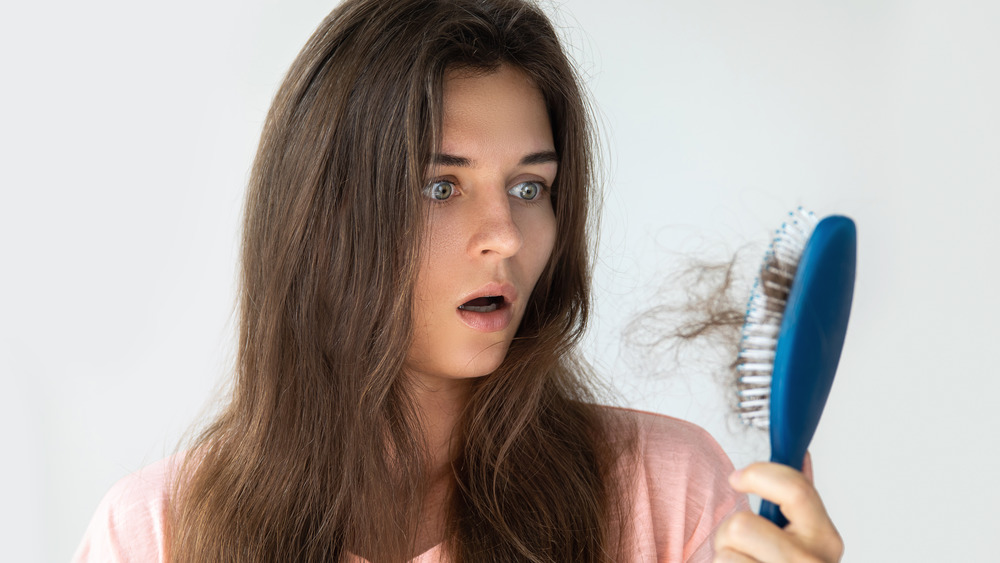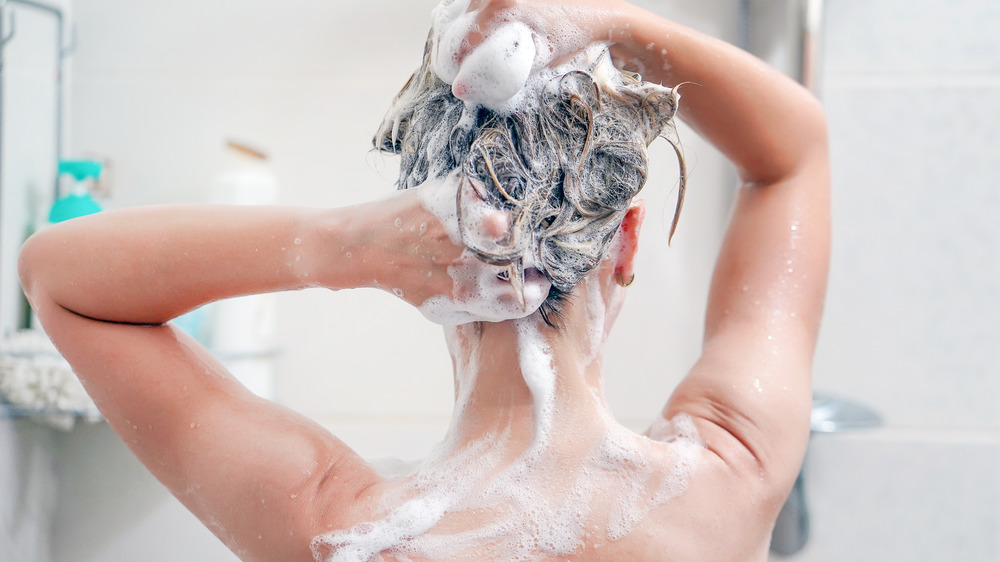Here's What You Should Do If Your Hair Is Falling Out
Pulling away a handful of hair when you brush or shampoo is an alarming experience for anyone. But don't panic. It's perfectly normal to lose between 50 and 100 hairs each day, according to the American Academy of Dermatology (AAD). Some circumstances, including losing 20 or more pounds, giving birth, having a high fever, and stopping birth control pills may cause a temporary increase in hair loss, which should resolve in six to nine months.
Stress is also a big contributor to hair loss, and Bill Edwards, founder and CEO of Regenix, told Health Digest they're seeing increases in stress-related hair loss. "With all the uncertainty out there lately, even though someone may not be directly affected, there can be a subconscious concern and anxiety," he said. "This can result in a vitamin deficiency which can cause an increase in hair fall."
Edwards said that stress can also lead to tightening of the scalp which can prevent proper blood flow. He recommends massage, starting with the neck and shoulders and moving to the scalp. But proper technique is important. "If you rub the hair too vigorously you can increase hair fall and breakage," he noted. "The proper method is to move the scalp over the cranium with your fingertips."
Don't neglect proper hygiene because of hair loss
When you see hair falling out in the shower, you might think it's best to avoid touching your scalp altogether and skip shampooing. But Edwards cautions that keeping things clean is the best long-term treatment. "Poor scalp hygiene can also contribute to an increase in hair fall," he explained. "Unfortunately, when people see an increase in hair fall it is usually when they shampoo. Consequently, they don't wash their hair as often as they should, which leads to even more hair fall."
Luckily, there is help for hair loss. According to the AAD, a dermatologist is trained to recognize the difference between permanent hair loss and temporary hair shedding. So, if you're worried about what you're seeing in your brush, make an appointment with a professional to be evaluated. It could be any of a variety of factors that can be treated.
Also, evaluate your stress levels. Following a stressful event, it's normal to have some short-term hair shedding which, although alarming, should subside on its own.


